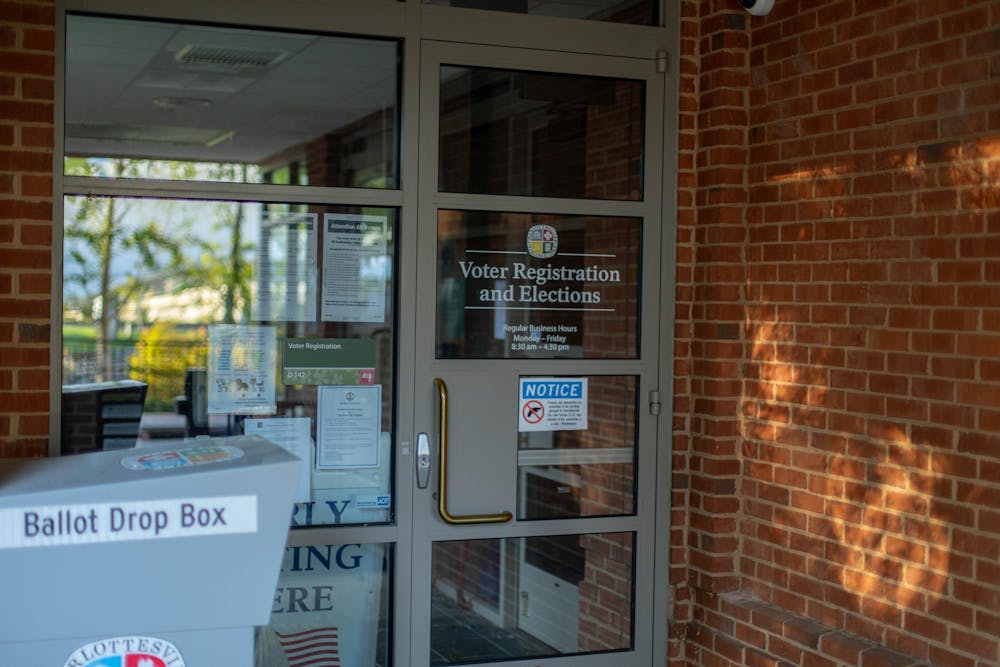Editor’s Note: The vote percentages in this article reflect numbers at the time of publishing. They may change as vote counting is finalized.
Following a pair of tightly contested races, State Sen. Ghazala Hashmi, D-Chesterfield, and former State Del. Jay Jones joined former U.S. Rep. Abigail Spanberger on the Democratic ticket by winning the primaries for lieutenant governor and attorney general, respectively.
The Republican ticket was set prior to Tuesday’s primary. Incumbent Lt. Gov. Winsome Earle-Sears is the party’s nominee for governor. John Reid, a radio host and former communications director for former U.S. Senator George Allen, is the nominee for lieutenant governor and incumbent Jason Miyares is the Republican nominee for attorney general.
In the Democratic primary for lieutenant governor, Hashmi received 27.39 percent of the vote, defeating former Richmond Mayor Levar Stoney, who received 26.64 percent of the vote and State Sen. Aaron Rouse, D-Virginia Beach, who received 26.34 percent of the vote. Other candidates combined for the remaining 19.63 percent of the vote. Virginia has no 50 percent rule, so candidates are able to win in the first round with only a plurality of the vote.
The Democratic primary for attorney general featured only two candidates, Jones and Henrico County Commonwealth’s Attorney Shannon Taylor. Jones won with 51.01 percent of the vote to Taylor’s 48.99 percent.
There was no Democratic primary for governor as Spanberger ran unopposed.
In the Democratic primary for Charlottesville City Council, Jen Fleisher, program officer for Blue Ridge Health District, finished first with 50.6 percent of the vote, followed by incumbent Juandiego Wade with 36.1 percent of the vote and incumbent Brian Pinkston with 13.4 percent of the vote. As the two candidates with the most votes, Wade, who is the current Council-elected Mayor of the city, and Fleisher were nominated.
While the two candidates were not officially elected, Charlottesville is heavily Democratic and the Democratic nominees are very likely to win the general election. There was no Republican primary.
For the first time, Charlottesville implemented a ranked choice system of voting. Under ranked choice, voters can vote for multiple candidates, ranking them in order of their preferences. However, because Fleisher and Wade were the first choices of over one-third of voters, the ranked choice system ultimately did not go into effect.
In a press release, Sally Hudson, executive director of ranked choice Virginia, expressed satisfaction with how the city implemented ranked choice voting, even though it was not applied to the results.
“Tuesday's results demonstrate that ranked choice voting delivers on its promise of diverse representation,” Hudson said. “Voters got to express their honest preferences about all the candidates without playing games with their vote.”
Hudson pointed out the many differences between the two winners, saying that such diversity between two City Councilors is made more likely by a ranked system.
“Charlottesville voters got two winners who come from different corners of our community. One lives on the north side and one lives on the south side. There's one man and one woman, one Black candidate and one white candidate. One is a veteran city councilor and one brings a fresh perspective,” Hudson said. “Together, they're well-poised to reflect the diverse perspectives of the people they serve.”
Candidates of color benefit from ranked choice voting, and voters of color are more likely to rank multiple candidates. Additionally, research conducted at the Center for Effective Government at the University of Chicago shows that a ranked choice system can lead to a greater number of viable candidates, encourage political moderation and give voters less incentive to vote strategically.
In other local races, local high school teacher Sally Duncan defeated former University professor David Shreve, in the Albemarle County Board of Supervisors Democratic primary for the Jack Jouett district. Duncan received 61.7 percent of the vote to Shreve’s 38.3 percent.
This year’s general election will be held Tuesday, Nov. 4.







